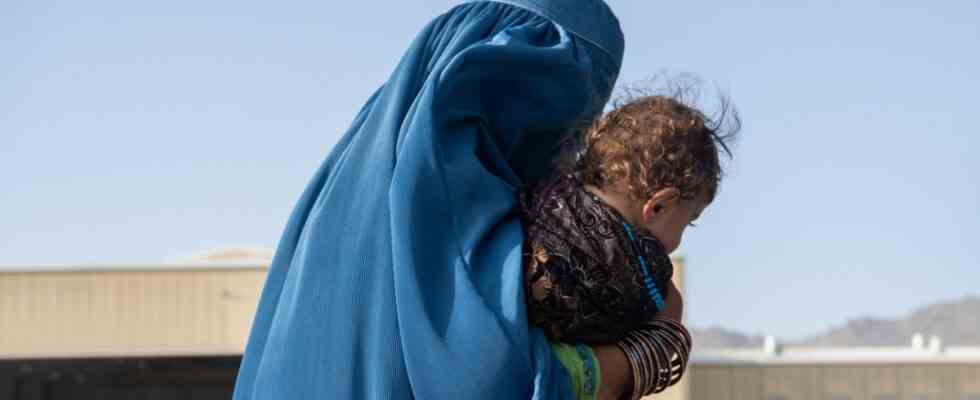Since the Taliban took power in Kabul a year ago, many people – adults and children alike – have been living in constant fear for their lives. Journalists from all over the world have therefore decided to help endangered people on site to flee. The producer Antje Boehmert has made a documentary series about the work of the “Kabul Airlift” in cooperation with Roland Rist and Vanessa Schlesier. The four-parter can be seen in the ARD media library.
When Kabul fell and the “airlift” began its work in a hurry, did that give you the impetus from the start to accompany the rescue mission with a camera?
Antje Boehmert: Yes and no. The idea for a documentary series actually only came about this year. The co-author, Vanessa Schlesier, filmed from the beginning when events took a turn for the worse. In the course of the production we were able to license further material – and Vanessa Schlesier was also often on filming trips to Kabul.
It is mainly opponents of the Taliban who want to leave the country – and they do so in secret for security reasons. Aren’t cameras annoying?
In principle, our team in Kabul consisted of one person: Vanessa Schlesier, without a camera or sound person. And when she visited families, she always did so with great caution and very good preparation. In the film we only show two evacuations, we shot the pictures for them with small GoPro cameras on the bus, among other things. That was completely unsuspicious, because nowadays every bus driver, every taxi driver has a camera like that. And we also filmed with a button camera that Vanessa wore under her traditional attire.
Antje Boehmert, born in Duisburg in 1978, studied theatre, film and television in Cologne, among other things. She has worked as a freelance producer and director in Washington DC, Munich and Berlin and founded DOCDAYS Productions in Berlin and Cologne in 2011, where she oversees the creation of international cinema, TV and web productions. She has received awards for her work, such as the German Television Prize and the Grimme Prize.
(Photo: private)
As a foreigner, however, she was noticed.
Vanessa Schlesier was accredited as a journalist. She had all the papers that a European needs to shoot in Afghanistan and was able to enter and work as normal. Nevertheless, the Taliban were of course not allowed to know that she was in contact with people who wanted to leave the country.
How do the Taliban react to foreign journalists?
It was initially important to the new rulers in Afghanistan to peddle their lies about a safe, healthy, pacified Afghanistan. That’s why they had to be friendly to people from abroad first. This charade gives journalists from abroad the advantage that they can move more or less freely. However, we shouldn’t overlook one thing: How are the colleagues who have an Afghan ID card doing? Her work has become almost impossible for her.
Are “Kabul Airlift” Evacuation Efforts Continuing?
From my point of view, it is undisputed that there are still tens of thousands in Afghanistan who should actually leave the country. We are approaching the anniversary of the Taliban’s victory – and neither the work of the Kabul airlift is done, nor is the homework that the German government should be doing: it is working on a federal admissions program. People at risk must be able to leave Afghanistan. Hopefully in the future as part of an admissions program.

